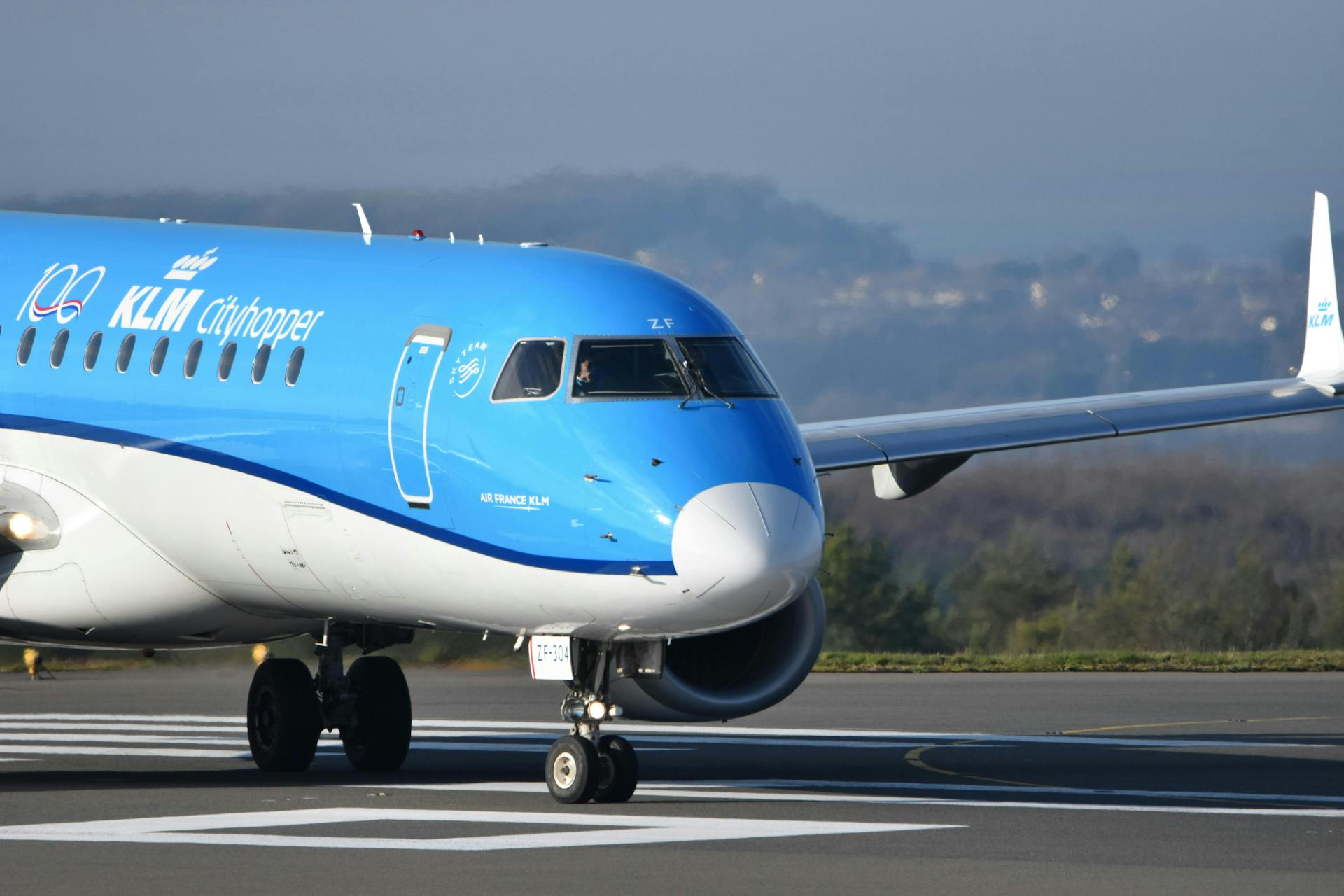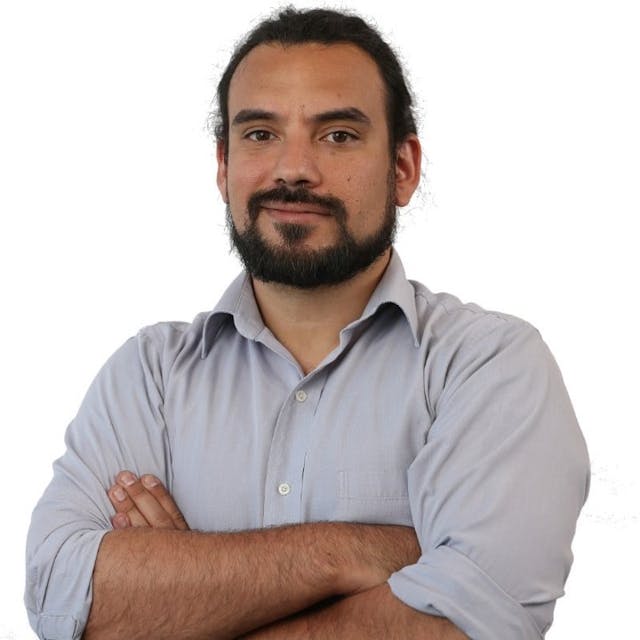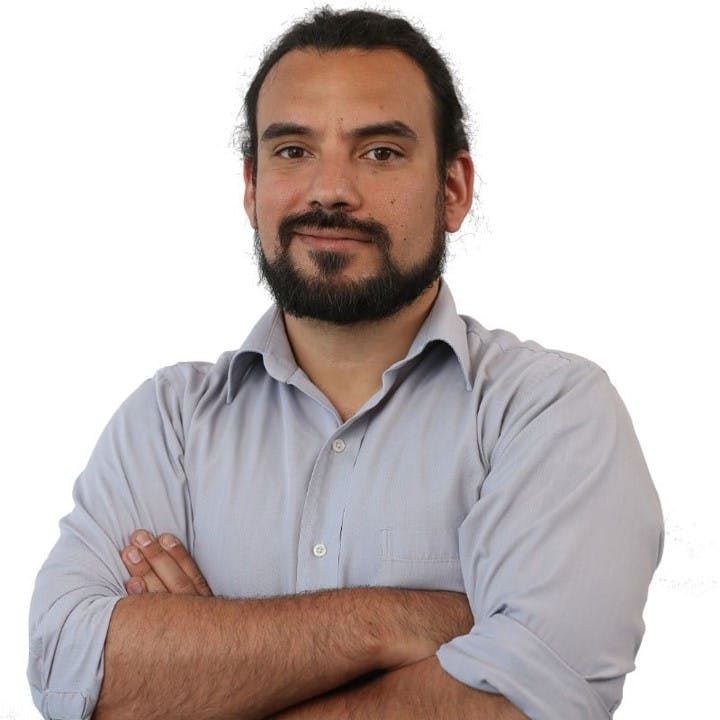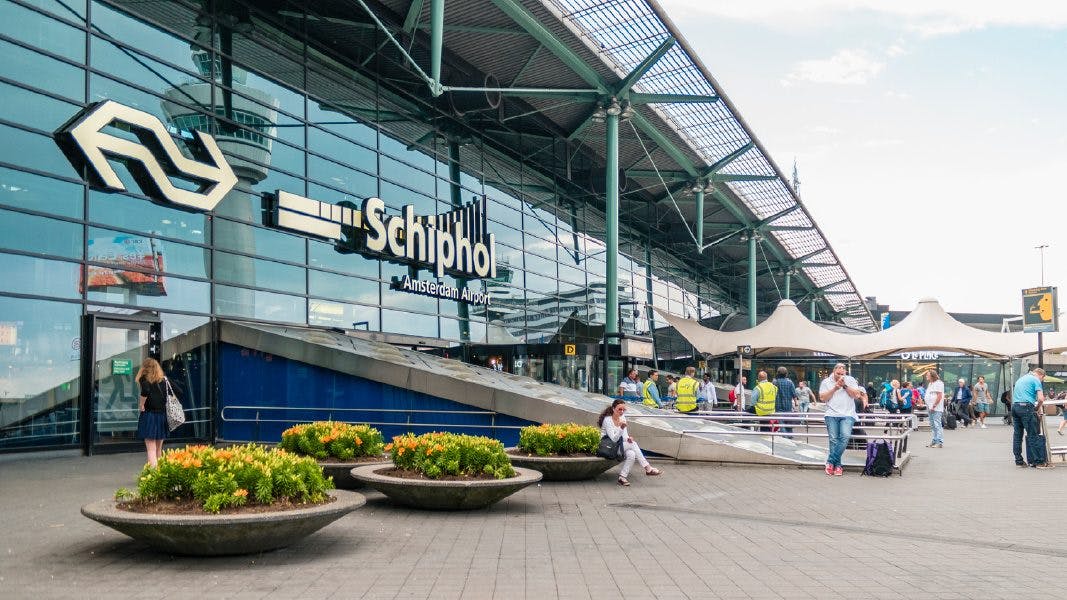Data Science at KLM: Enhancing Planning and Efficiency
What led KLM to form a dedicated data science team focused on operations support, and what specific needs does this team aim to address?
Felipe: “KLM has various data science teams, but the Integral Analytics team is unique in that it came from a practical need. There was no formal request to integrate technology in this way – it developed as a proactive effort to better understand how various resources and processes interact. Key stakeholders saw the potential in standardizing processes and aligning resources. For instance, flight planning requires balancing customer satisfaction with cost efficiency. If a flight from India to Amsterdam is scheduled too tightly, any delay can disrupt passengers’ subsequent connections, affecting customer satisfaction and increasing operational costs. By applying data science, we can better estimate and optimize these scenarios to balance cost with recovery options, ultimately delivering more consistent outcomes.”
By applying data science, we can simulate and optimize scenarios, balancing cost with recovery options to deliver consistent outcomes.
From Historical Data to Predictive Analytics with AI
How has your team transitioned from historical data analysis to predictive analytics with GenAI, machine learning and AI?
Felipe: “We’re in the midst of this transition. My team is structured into sub-teams, including one focused on dashboarding. I encourage team members to work closely with data scientists and business analysts to broaden their skills, especially in data processing, SQL, and statistical analysis. Our goal is to create an insights layer that APIs can pull from, rather than just relying on static graphs and tables.
Our approach also involves using optimization insights to inform data requests from the analytics side. For example, one project aims to determine airspace availability for flights, balancing delays and recovery options. The Operations Control Center manages flights with strict timing constraints, especially for arrivals in Amsterdam. Accurate and timely data inputs are critical here – if they’re off, it could disrupt the entire day’s operations. By assessing the reliability of real-time data, we can make better-informed commitments, an area we’re actively working to improve upon in the coming months.”
The Impact of Predictive Models on KLM’s Operations
What impact have predictive models had on KLM’s operational efficiency and cost management?
Felipe: “It’s still early, as most models are used in the planning phase. In planning, successful predictions are often invisible – when things go smoothly, there’s no disruption to notice. That said, these models have already standardized decision-making processes across the board. Predictive models offer a central reference point, leading to a more balanced approach where previously decisions could vary widely among individuals. Now, we have more consistent guidelines.
Another significant advancement is the introduction of numerical predictions, which allow for more nuanced decisions. For instance, in optimizing flight connections, we can assess delay potentials and determine whether a quick turnaround is feasible. It’s a complex process, but these models are helping us move toward a more resilient and efficient operation.”


"We’re not just relying on graphs anymore; we’re building an insights layer that brings data to life across departments."
Challenges in Implementing Data-Driven Tools Across Departments
What are some of the main challenges your team faces in implementing data-driven tools across departments?
Felipe: “Silos are a persistent issue. Each department is naturally focused on its own area. But cross-departmental understanding – knowing how ‘kingdoms’ interact – is less developed. There’s a lot of inertia in making systemic changes, particularly in a longstanding organization. Moving to data-driven approaches often reveals the need to reconfigure data storage and organization. For operational processes, long-term record-keeping hasn’t been as essential, but data-driven analysis requires a more robust system. This often means creating data layers and establishing compatibility between older and newer systems. That is both time-consuming and complex.”

"With generative AI - Large Operational Models - we could one day predict real-time decisions based on millions of data points – a future I’m excited to work toward."
Building Trust in AI-Driven Insights
How do you ensure planners and teams understand and trust insights from tools like Flint?
Felipe: “This is built into the design. Daan, who joined with a strong focus on explainable AI, helped advocate for this approach. With Flint, users can essentially ‘look inside the black box’ and see the relationships between variables. For example, if a stakeholder believes adding ten minutes to a schedule will improve punctuality by a certain amount, Flint allows us to validate or challenge that assumption. This strengthens trust and engages users with familiar data points, even when Flint’s findings are occasionally unexpected.”
How has ORTEC influenced KLM’s data science initiatives?
Felipe: “KLM’s long-standing relationship with ORTEC has been invaluable. They’ve contributed to several projects, including dynamic pricing across departments. Since joining KLM, I’ve worked closely with ORTEC consultants who are embedded in our teams, helping to develop dashboards and liaise with users. ORTEC’s expertise has also been crucial in mentoring and upskilling our team, ensuring we continuously advance our data science capabilities.”

"Predictive models allow us to make more nuanced decisions, helping KLM move toward a more resilient and efficient operation."
The Future of AI and Data Science in Aviation
Are there upcoming projects or technological advancements you’re excited about that could further enhance KLM’s planning and efficiency?
Felipe: “I’m especially interested in the potential of generative AI models – an ‘operations GPT’ of sorts that could analyze simulated data rather than just language. Such a model could quickly offer recommendations based on millions of operational data points from different companies, enhancing real-time decision-making. Though it’s a bit down the road, especially considering computational demands, it’s an exciting prospect for future optimization. Quantum computing might also accelerate this, particularly for simulations.”
How does KLM view its role in data science within the aviation industry?
Felipe: “KLM is indeed a leader in aviation technology and data science. Since COVID, investment in IT and data science has surged, with strong support from upper management. We have a competitive edge over other airlines in areas like pricing and disruption management. As we continue to refine our operational insights and break down departmental silos, we’re committed to maintaining this lead.”
Looking at the challenges of integrating data-driven insights across departments, what are the key changes or tools you believe would help KLM operate more cohesively? How do you envision breaking down organizational silos to achieve more interconnected and efficient decision-making?"
Felipe: “One of my main goals is to reduce silos within the organization. Silos exist for good reasons, but we need the right tools to make decisions that benefit the whole operation. Embracing uncertainty is also crucial, and tools that offer a holistic view are essential for this. When we look at resources and targets – pilots, aircraft, passengers – there’s often a ‘Gordian knot’ we can untangle to resolve many issues at once. By understanding how processes interconnect, we can make more balanced, organization-wide decisions.”
About Felipe Ramos-Gaete
Felipe Ramos-Gaete, originally from Chile, leads a data science team at KLM. With a background in electrical engineering focused on power systems, Felipe’s career spans fields from electronics to large-scale infrastructure. His interest in optimization and market dynamics led him to Canada, where he completed a master’s in power and control systems. Returning to Chile, he worked as a business developer, leading a team to introduce innovative concepts like demand-side management. Later, Felipe moved to the Netherlands to expand his expertise at Eindhoven University of Technology, studying predictive maintenance with a focus on the practical application of theoretical concepts. He joined KLM in a newly created operational decision support department, working with BCG to develop optimization tools for KLM and other airlines. When KLM restructured its technology division during COVID-19, Felipe took on a senior role. Today, he leads a team of eleven KLM members and two ORTEC consultants, overseeing dashboarding, predictive analytics, and day-of-operations optimizations within KLM’s Operations Control Center.




